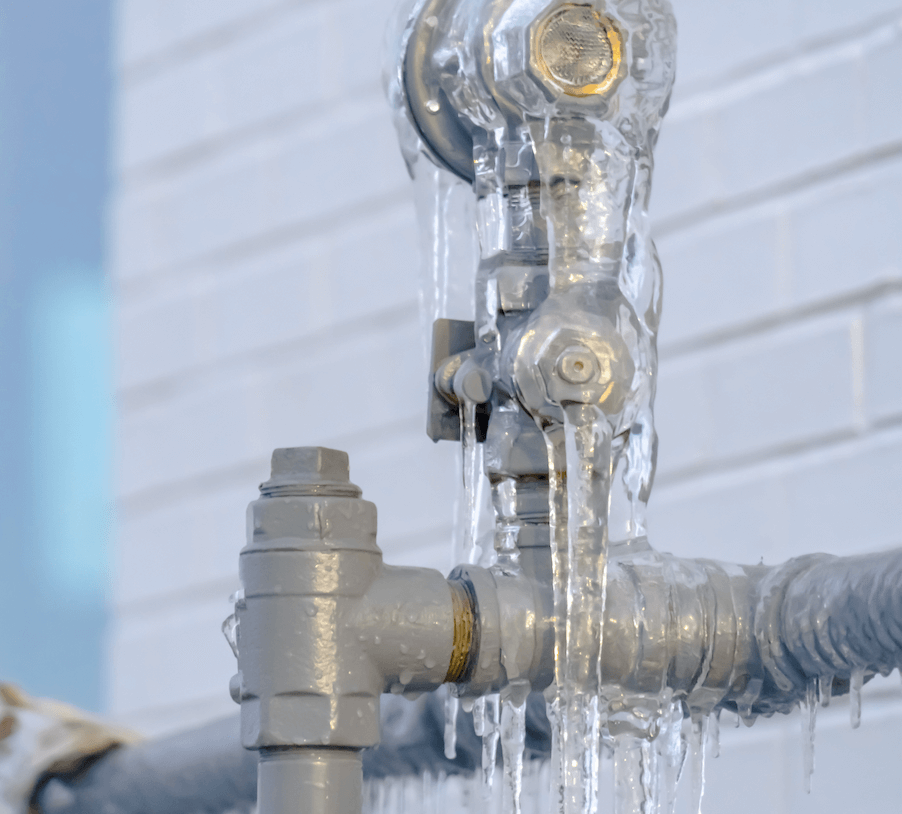Protecting Against Frozen Pipes in Winter: Essential Advice
Protecting Against Frozen Pipes in Winter: Essential Advice
Blog Article
Any individual has got their unique rationale on the subject of How to prepare your home plumbing for winter weather.

Winter can damage your plumbing, especially by freezing pipes. Here's exactly how to stop it from occurring and what to do if it does.
Intro
As temperatures decrease, the threat of icy pipelines boosts, potentially leading to costly repair services and water damages. Recognizing how to avoid frozen pipelines is vital for house owners in cold environments.
Prevention Tips
Shielding prone pipelines
Wrap pipes in insulation sleeves or make use of heat tape to secure them from freezing temperature levels. Concentrate on pipelines in unheated or exterior areas of the home.
Heating methods
Maintain indoor areas adequately heated, especially areas with plumbing. Open closet doors to allow warm air to distribute around pipes under sinks.
How to identify frozen pipelines
Seek lowered water flow from taps, uncommon odors or noises from pipelines, and noticeable frost on subjected pipes.
Long-Term Solutions
Architectural modifications
Think about rerouting pipelines away from outside walls or unheated locations. Include extra insulation to attic rooms, cellars, and crawl spaces.
Updating insulation
Invest in high-quality insulation for pipelines, attic rooms, and wall surfaces. Correct insulation assists keep regular temperature levels and reduces the threat of frozen pipes.
Securing Exterior Pipes
Yard tubes and outdoor faucets
Detach and drain pipes yard hose pipes prior to wintertime. Mount frost-proof faucets or cover exterior faucets with protected caps.
Recognizing Icy Pipes
What causes pipes to ice up?
Pipes freeze when exposed to temperature levels listed below 32 ° F (0 ° C) for expanded durations. As water inside the pipes freezes, it broadens, putting pressure on the pipe walls and potentially triggering them to burst.
Threats and damages
Icy pipelines can bring about water supply disruptions, residential property damage, and pricey repair services. Burst pipelines can flooding homes and cause substantial structural damages.
Signs of Frozen Water Lines
Identifying icy pipes early can stop them from rupturing.
What to Do If Your Pipes Freeze
Immediate actions to take
If you suspect icy pipes, keep faucets available to eliminate stress as the ice thaws. Utilize a hairdryer or towels soaked in hot water to thaw pipelines gradually.
Conclusion
Avoiding icy pipes requires aggressive steps and fast reactions. By understanding the causes, signs, and preventive measures, home owners can safeguard their pipes throughout winter.
6 Proven Ways to Prevent Frozen Pipes and Protect Your Home
Disconnect and Drain Garden Hoses
Before winter arrives, start by disconnecting your garden hoses and draining any remaining water. Close the shut-off valves that supply outdoor hose bibs and leave the outdoor faucet open to allow any residual water to drain. For extra protection, consider using faucet covers throughout the colder months. It’s also important to drain water from any sprinkler supply lines following the manufacturer’s directions.
Insulate Exposed Pipes
Insulating your pipes is an effective way to prevent freezing. Pipe insulation is readily available at home improvement stores and is relatively inexpensive. Pay close attention to pipes in unheated areas such as the attic, basement, crawl spaces, or garage. Apply foam insulation generously to create a buffer against the cold. You can also wrap your pipes in heat tape or thermostat-controlled heat cables for added warmth.
Seal Air Leaks
Inspect your home for any cracks or openings that could let in cold air. Seal any holes around the piping in interior or exterior walls, as well as the sill plates where your home rests on its foundation. Additionally, make sure to keep your garage door closed unless you’re entering or exiting. Leaving it open creates a significant air leak that can lead to frozen pipes.
Allow Warm Air Circulation
During cold snaps, it’s essential to allow warm air to circulate evenly throughout your home. Leave interior doors ajar to promote better airflow. Open kitchen and bathroom cabinets to help distribute heat consistently around the rooms. If you have small children or pets, be sure to remove any household chemicals or potentially harmful cleaners from open cabinets for safety.
Let Faucets Drip
A small trickle of water can make a big difference in preventing ice formation inside your pipes. When temperatures drop significantly, start a drip of water from all faucets served by exposed pipes. This continuous flow helps prevent the water from freezing. Additionally, running a few faucets slightly can relieve pressure inside the pipes, reducing the chances of a rupture if the water inside does freeze.
https://choateshvac.com/6-proven-ways-to-prevent-frozen-pipes-and-protect-your-home/

I have been very eager about Prevent Frozen Pipes and I am praying you enjoyed our article. Appreciated our write up? Please quickly share it. Let others locate it. Kudos for being here. Come back soon.
Apply Now Report this page